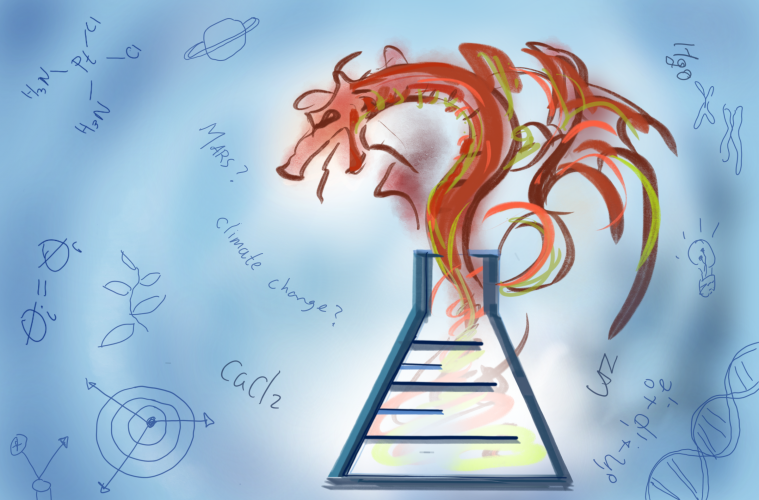The Science Hub: new drug for depression, NASA budget proposal, rise in measles
The Science Hub is a bi-monthly newsletter that informs what you need to know in science today.
March 14, 2019
New FDA-approved drug for depression
Last week, a new drug for depression was approved by the Food and Drug Administration. This new treatment is a fast-acting nasal spray composed of esketamine, a chemical derivative of the 1980s party drug ketamine, or commonly referred to as “Special K.”
This is the first major drug to be approved for depression in the last few decades, creating a pivotal moment in the movement to combat the increasing rates of depression and suicidesㅡ globally, 300 million people have depression and 800,000 commit suicide annually. It is the only drug currently approved for treatment-resistant depression.
Johnson & Johnson, the pharmaceutical company manufacturing this drug, will be selling it at a rate of 590 dollars for 56 milligrams; however, they anticipate insurance coverage.
-Rachel Chang
NASA Budget proposal adds more money for lunar landing
The newest budget proposal put forth for NASA by President Trump is 21 billion dollars—1 billion more than the proposal from last year—but ultimately less than the 500 million dollars that ended up being allotted to NASA last year through Congress.
Notably, this budget proposal keeps the Gateway (a lunar satellite to providing a launching off point for lunar landings) well-funded in order to hopefully encourage landing an astronaut on the moon by 2028. Additionally, 363 million dollars are proposed to be used to commercially fly cargo up to the moon.
Unfortunately, however, these lunar landing costs are taking the place of funding for a special deep space rocket that would be used to launch a robotic mission to Europa Clipper, one of Jupiter’s moons. Additionally, the proposal is seeking to cancel the development of the WFIRST (Wide Field Infrared Survey Telescope) telescope by not appropriating funds to it.
-Thomas Weldele
2019 looks to be the worst year for measles
Measles was declared to be eliminated nearly 20 years ago. Yet in the first two months of 2019, there have been 228 cases of measles reported by the Center for Disease Control and Prevention. In 2019, six cases of measles outbreaks (outbreaks being three or more cases) have been confirmed in various states including New York (Rockland County and New York City), Washington, Illinois, Texas and California.
The rise of measles has been linked to the rise of the anti-vaccination movement. This group uses platforms such as YouTube and Facebook to spread their message and explain their beliefs—often including crucial misinformation. In response, the companies have promised to prevent the presence of anti-vaccination groups.
-Jonathan Soriano















